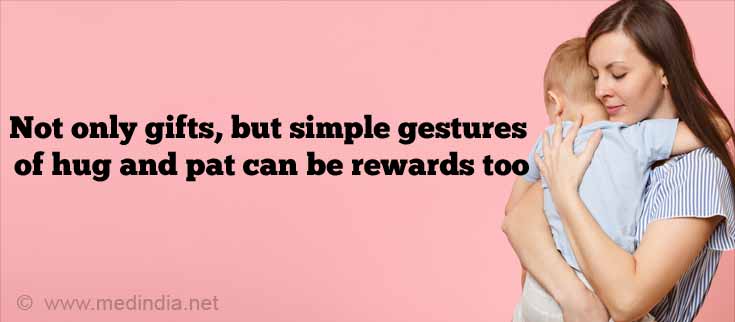Parenting Styles
Dictatorial Style of Parenting
All those in their early or mid-thirties today would have a better understanding of this style of parenting. Many parents of yesteryears believed in being authoritarians and absolutely result oriented with no questions being asked. This style of parenting is predominant with rules, breaking of which would result in punishment. This style of parenting is like a closed-ended question. Your child knows, no matter what he/she will be punished, hence why care about corrections at all. It is under such upbringing and environment; you’d see adolescents getting argumentative, frustrated, short-tempered and display sheer lack of responsibility. Sometimes this parenting style involves spanking your child with results beyond imagination although many claims of no damage done.
Children getting spanked especially by parents show more aggression, retaliation and low IQ compared to corporal punishments at school, studies have found. Majority of children that have grown up in this type of emotional environment have shown below average performance, lack of creativity, social skills, low confidence. Needless to mention such authoritarian environment could result in a child being either a complete dud or overly demanding.
Assertive Style of Parenting
This is a highly positive result yielding method of raising your child. Your child understands the tone of your voice when spoken assertively and realizes that there would be a penalty for wrong-doing but there is also a reward waiting if they correct themselves. Your child understands the set rules and the repercussions of not following them. No harsh methods are incorporated to impose a punishment, but discipline is prioritized.
Children raised under such an environment tend to grow up understanding responsibility better. They understand and act according to the situation in a better fashion and learn to adjust better.
Parents should focus on a lot of positive reinforcements when your child behaves in a fashion that is right. It’s not necessary to buy a gift to recognize your child’s best behavior all the time. This act has its upshot of setting unnecessary expectations from you every time he/she is at his/her best.
Your child needs to understand simple gestures of hug and pat as rewards too. Children love to impress their parents and are always willing to go that extra mile to earn your praise. All you need to do as a parent is to have an open eye and correct your child or appreciate your child as the situation warrants.

When your child misbehaves get down to their level and converse with direct eye contact. Do not grab them or pull them. This would make them more violent and adamant and paint a shabby picture of you as a parent. Stoop down and with a low yet stern voice and expression repeat “NO” a few times. Your child will throw tantrums, bring the roof down, but they will soon calm down too if only you do not lose your patience and remain calm yet assertive. Even if it takes a while for your child to acknowledge the right behavior, you wait. As soon as your child calms down and does what you expected or gets into the correction mode, throw away the stern look from your face and give an instant hug and praise your child. You can then go back to reinforcing the right behaviour but keep it short. Do not start lecturing or make the child regret about correcting themselves.
With many tears shed, your child will remember this more than what he/she would have learned with a smile. It’s not an instant result oriented technique, but when you see positive results it will all be worth it. Your time invested on your child in their initial years will pay off in the years to come when you see your little one standing before you as a fine gentleman or refined lady!
Permissive Style of Parenting
An engaging style of parenting with an indulgent approach, this method of parenting yields both positive and negative results. Parents, to avoid confrontation with their children tend to give them the leverage to do anything they feel like, cutting them too much slack.
Children raised under the permissive style of parenting have grown to be extremely creative, but have also known to be reckless and lack responsibility or even its understanding. Some children grow up to face problems with changes around them and refuse to accept ownership of a mistake committed.
Minimal Involvement with the Child
Nowadays, parents are busy working and children are mostly left at the mercy of crèches, grandparents or day schools. Parents have no idea of what their child does because someone else is doing their job of raising their child. Some children manage to grow up fine if they are lucky to have educated grandparents or a good school but some feel neglected and ignored. Charity begins at home, and your child starts speaking at home. However with both parents busy working one cannot expect much contribution from good old grandparents or the school.
Many times to avoid going through a guilt trip for not spending enough time with their children, parents praise them indiscriminately. Children can recognize false praises and get a clear picture that you have no idea about what they are doing or involved in. According to researchers, this kind of parenting can hinder your child from experiencing successes or worse lead to strong self-focus making them vulnerable to depression.
Leave aside false praises, parents actually label their children as the “coy baby”, “cry baby”, “fat hat”, “fuss pot”, “whiner” as a passing gesture, but some kids remember it throughout their growing phase and many of them lose their identity or hide behind these labeled identities which is absolutely devastating for a child.
This “I don’t care attitude” of parents could have a severe impact on the child. Your child could become a recluse and avoid company or become excessively aggravated hence resulting in delinquency. Medically too children could suffer from speech deficits, inferiority complex and low self-esteem.








